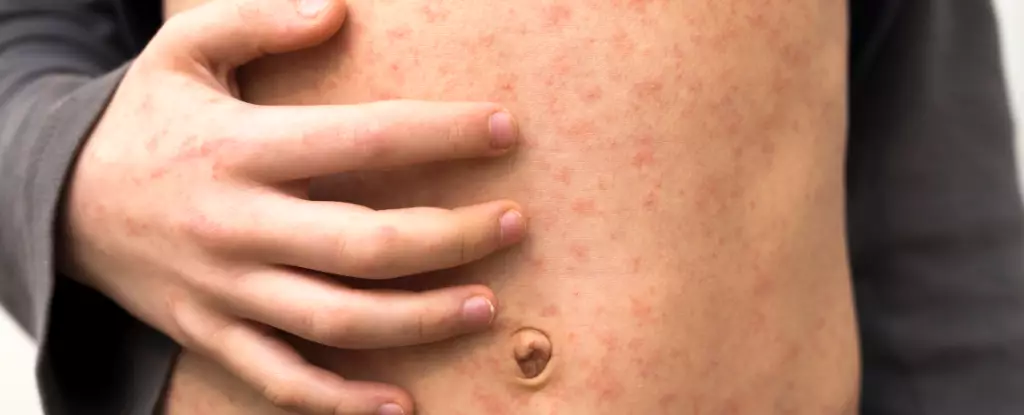The ongoing measles outbreak that erupted in West Texas in late January 2025 demands urgent attention. With 400 confirmed cases in Texas and an additional 50 in neighboring New Mexico and Oklahoma as of late March, health experts harbor concerns that these numbers are not just statistics but indicative of a much larger public health emergency. The prevailing complacency surrounding measles in the general population could potentially mask a broader resurgence that could spiral out of control. What’s alarming is that potential exposures have arisen in diverse settings—public transportation hubs like Washington Dulles International Airport and on an Amtrak route from New York City to DC. The very nature of travel and communal interactions poses a frightening risk; the interconnectedness of our society allows diseases, particularly measles, to spread like wildfire.
Historically, vaccines have proven to be a fortress against such infectious diseases. However, as we witness this surge in cases, one cannot help but question: have we, as a society, grown too complacent? It’s easy to forget the severity of measles when we look around us and see fewer people suffering from it. However, as a biologist and observer of disease patterns, I argue that the very lack of personal experience with this disease may be fueling the crisis rather than mitigating it.
The Clinical Threats of Measles
The measles virus is notoriously contagious, with the potential to infect 90% of unvaccinated individuals in proximity to an infected person. The Centers for Disease Control and Prevention (CDC) notes a staggering 97% efficacy of the two-dose vaccination in preventing the disease—numbers that underscore the importance of continuing and improving vaccination efforts. Despite this, the initial symptoms of measles—high fever, cough, and a rash—mask its potentially devastating complications.
The data reveals a chilling reality: 14% of patients diagnosed with measles required hospitalization in 2025, a sharp increase from 40% the previous year. This is not just a viral infection; it can inflict severe damage on vital systems including the lungs, leading to complications such as viral pneumonia. In fact, mortality rates from measles can range dramatically, with estimates suggesting that one in every 1,000 afflicted will die from the disease, especially among young children.
The true threat of measles goes beyond immediate illness. The virus can infiltrate the nervous system. Acute brain inflammation can result in life-altering impairments such as blindness and hearing loss, not to mention a long-term condition known as subacute sclerosing panencephalitis (SSPE). This rare but grave consequence leads to dementia and is nearly always fatal—a cruel reminder of why measles must not be underestimated.
Misunderstanding Vaccination and Immunity
The totality of consequences arising from measles infection provides critical context. The overarching message must be that vaccination is not merely a personal choice; it serves to protect communities. The blurring of lines between informed choice and misinformation surrounding vaccines has led to a critical disconnect. While some individuals may feel invulnerable, their decisions affect others, particularly vulnerable children and adults with compromised immune systems.
Recent research has suggested that the measles vaccine may extend its benefits beyond merely preventing measles; it appears to bolster overall immunity to various other diseases. This reflects a misunderstood aspect of vaccination where, instead of just shielding an individual from a single virus, it supports the immune system’s ability to recognize and combat multiple threats.
Future Challenges and Research Directions
One cannot ignore that the research surrounding the measles virus is ongoing and complex. As scientists investigate avenues for treatment beyond the containment of outbreaks, new horizons open up. Antibody therapies are being explored, highlighting the academic and clinical community’s commitment to addressing this persistent threat. Nonetheless, the consensus remains clear: prevention is paramount. Vaccination stands as the most effective frontline defense against the multifaceted challenges posed by measles.
Our societal narrative must shift from casual indifference towards proactive engagement with public health. The resurgence of measles should incite not just concern but a rallying cry for action. The discoveries made in laboratories need to translate into informed choices in homes, schools, and communities. We cannot afford to ignore the lessons history has taught us—our vulnerabilities can only be mitigated through vigilance, education, and unwavering commitment to vaccination programs.

